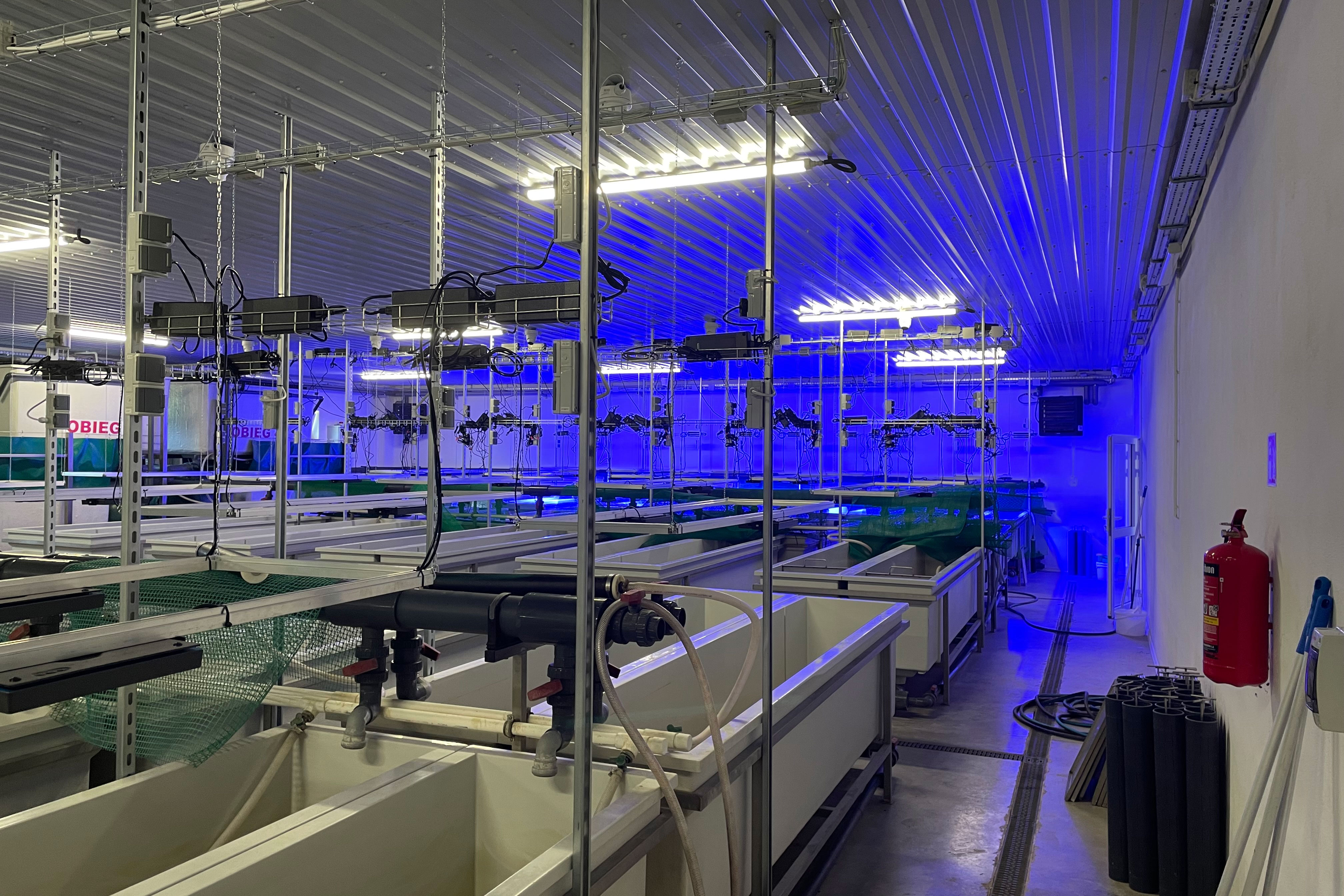
Many fish in Polish rivers – including carp, a favourite of local anglers – live on smaller fish such as juvenile ide. However, the population status of ide in the wild depends on regular restocking. To maintain biodiversity, it is important that the juveniles used for restocking are healthy, increasing their chances of surviving once released. For this, the feed used during rearing is key, so the Polish Anglers’ Association brought together scientist, students and aquaculture operators to develop and test an innovative technology to create extruded feeds enriched with insect larvae.
Advantages of the extruded feed include less pollution, thanks to its longer stability in water. Compared to traditional types of feed it maintains nutrients better and offers greater digestibility, high efficiency and a high conversion rate. Extruded feed is a sustainable and high-quality product that increases the profitability of fish farms.
The project also worked to develop cutting-edge infrastructure, including an innovative feed production line and a breeding facility using a closed system, the so-called Recirculating Aquaculture System (RAS), which can be installed directly on the farm. Both the larvae-based feed and the RAS breeding facility were tested in local fish farms, giving valuable input for fine-tuning the production model for farms of various sizes.
- Project locations
- Poland
- Overall budget
- €1 201 346
- EU contribution
- €858 29271.4% of the overall budget
Results
- An increased fry survival rate and lower feed costs in fish farms testing the larvae-based feed and the RAS breeding facility.
- Greater digestibility, high efficiency and a high conversion rate as the feed can last in the water for up to 36 hours (up from 12 hours for feed used previously).
- Implications beyond the fish farms themselves, since the project also bolsters the preservation of biodiversity in rivers and lakes, as rheophilic cyprinid fish play a pivotal role in these ecosystems.
Contact
- Organisation
- Polish Anglers’ Association
- Website
- https://pzw.org.pl/
